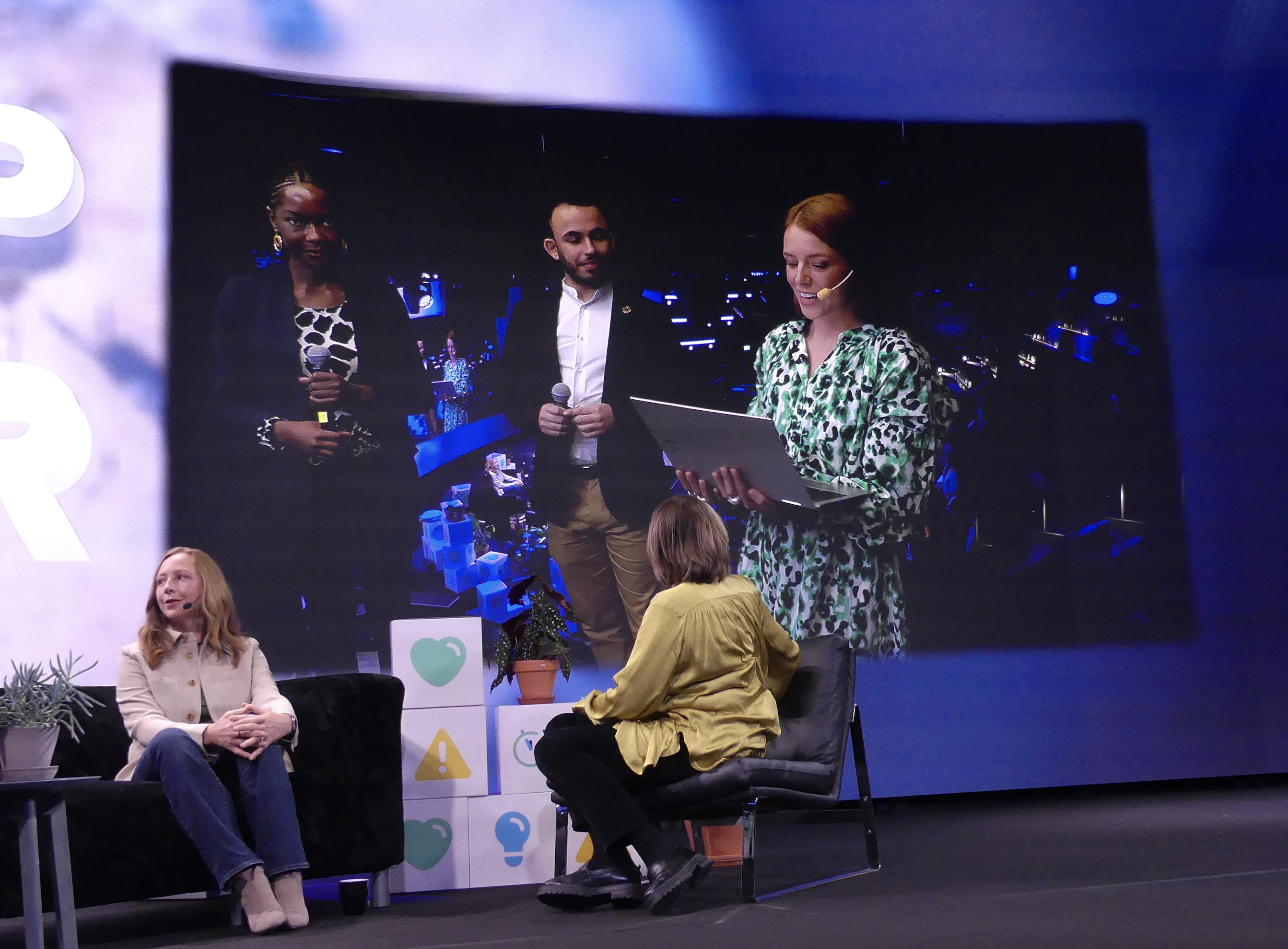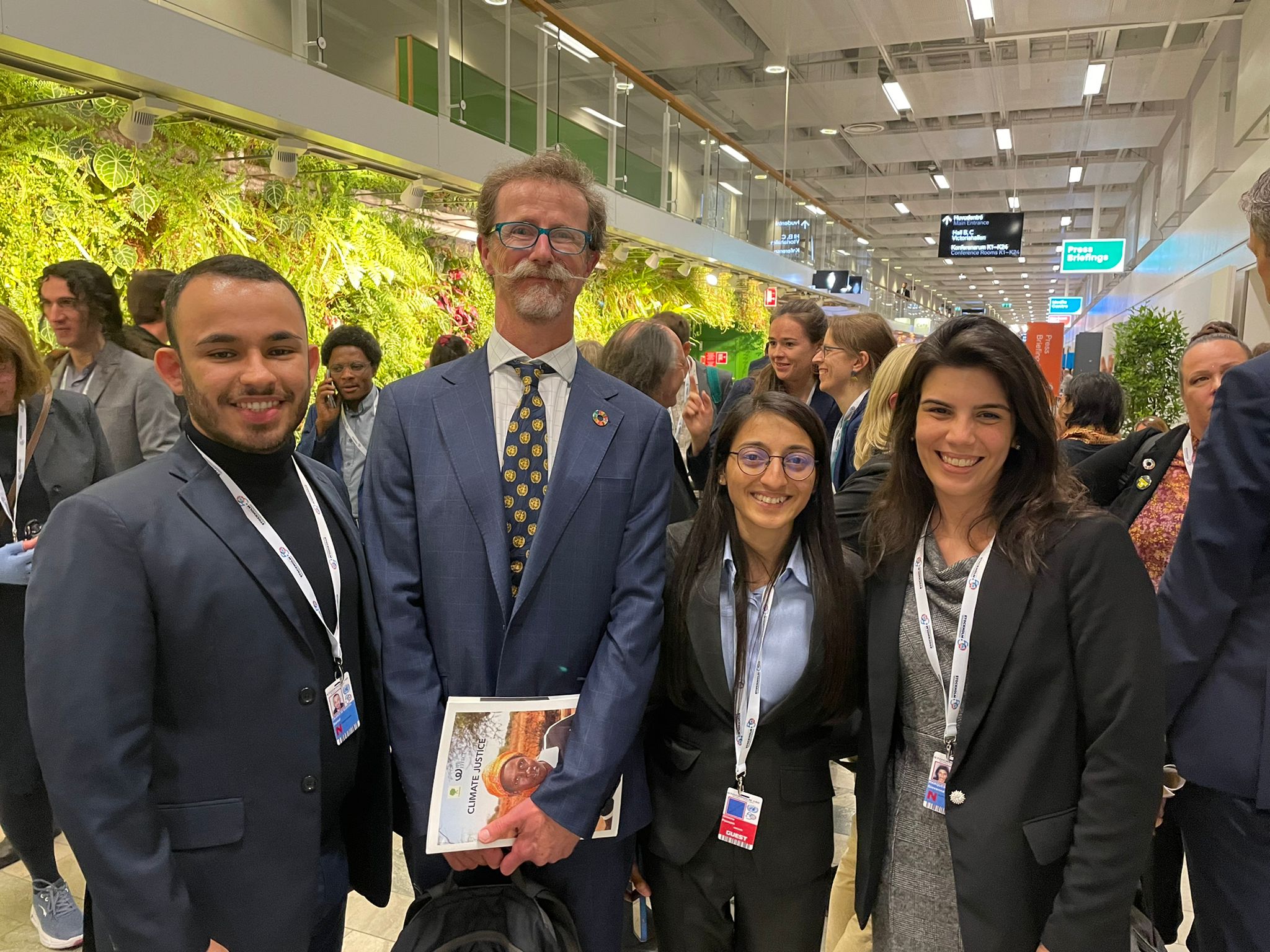Daniel Calarco, a young leader with the Generation17 initiative of UNDP and Samsung, took part in the Stockholm+50 international conference on the environment. He shares his insights from this historic event for people and planet.
Stockholm+50: Climate action as a generational commitment
June 21, 2022

Stockholm +50 was committed to bringing environmental concerns to the centre of politics, economics and international relations. Daniel Calarco participated as a youth representative in a panel on the unequal impact of climate change.
Preparations for this event began long before I was born! Exactly 50 years ago, in 1972, the United Nations Conference on the Human Environment was held. On this occasion, where 122 countries were represented, the issue of the environment became global and urgent in an unprecedented manner.
At that time, advances were made with the Stockholm Declaration and the Action Plan for the Human Environment. Furthermore, the United Nations Environment Programme was created as one of the outcomes of the Conference in Kenya. Half a century later, in the same week as World Environment Day, Stockholm+50 was held, with the commitment to ensure that environmental concerns become the focus of politics, economics and international relations.
During the Decade of Action to deliver on the Sustainable Development Goals, this meeting of global leaders was marked by a combination of hope and haste, for generations with no time to waste. And just as the movement puts it, "We don't have time'', and this was also the slogan in Sweden! Since the 1970s, the scale and urgency of the climate agenda have become much more alarming. We cannot wait until 2030 to contain the onrush of the triple crisis that the world faces: the climate emergency, the loss of nature and biodiversity and excessive global pollution and solid waste.
And we can’t forget that these challenges disproportionately impact vulnerable groups, especially those from the Global South and intersectional populations, who face multiple forms of marginalization. Nor that the development of sustainable and efficient policies must be intergenerational and that everyone must be involved.
This was one of the strengths of Stockholm+50, which, even without being decisive, brought to the table young climate activists and officials, leaders and actors with a history of commitment that began the debate 50 years ago. Such was the panel discussion that I participated in, which was organized by the Generation17 initiative of UNDP and Samsung. The partnership is committed to promoting the 17 Sustainable Development Goals (SDGs) through technology. The Samsung Global Goals app is already installed on more than 100 million Galaxy smartphones worldwide and has raised over US$1.5 million in donations for UNDP.

At Stockholm +50, Daniel met international leaders including David R. Boyd, UN Special Rapporteur on Human Rights and the Environment; Poonam Ghimire, member of the UN High-Level Advisory Board on Effective Multilateralism; and Giovanna Kuele, researcher at Igarapé Institute.
Our commitment is to democratize the 2030 Agenda! In the app, anyone, in several languages, can learn about the challenges and interconnectivity between the SDGs, find resources on United Nations initiatives and apply their learning in practice, discovering simple and elegant solutions.
As part of the event, Generation17 shared the commitment to jointly tackle the same urgencies brought forward by the conference. We need to face the triple crisis based on the following values and principles, which reflect the final recommendations of the conference and the vision of youth in building our present and future:
1. Nothing about us without us!
Those who are the most impacted need to be part of the solution; human well-being must be placed at the centre of a healthy and prosperous planet for all, recognizing that this is a prerequisite for peaceful, cohesive and prosperous societies.
A positive example of this commitment was that of Txai Suruí, whose powerful voice was heard throughout Stockholm+50, decrying the violence and persecution suffered by Indigenous peoples in the Amazon region. The young woman exposed the growing problem of climate change in the Amazon and the urgency of protecting those who protect the forest. While Txai took her fight to the conference, denouncing the advancement of agropastoralism on the Uru-Eu-Wau-Wau Indigenous Territory in Rondônia, her people have continued to be threatened and be victims of violence without the support of the Brazilian authorities.
2. People live in cities, not in global agendas!
Local and subnational governments are an essential part of the solution. In all spheres, there is a duty to strengthen the national implementation of existing commitments to a healthy planet, through improved environmental legislation, budgets, planning processes and frameworks, promoting evidence-based policymaking, including through collaboration with different sectors and all levels of government.
Commitments such as Favela.LAB, from the International Youth Observatory, provide training, funding and a network of contacts for youth to be active in their favelas and surrounding areas, ensuring that global efforts towards the SDGs are put into practice in communities in Rio de Janeiro and in Brazil at large.
3. Climate action is a generational commitment!
Recognizing that cooperation between youth, children, adults and the elderly is essential in environmental action, highlighting not only the challenges, but also the progress made, is a commitment that can propel us to do even more! And this must be achieved by creating channels for dialogue, building knowledge and joint advocacy.
All of the panels relied on these exchanges, ensuring that young leaders and even former ministers or current representatives of governments and international organizations would speak as equals!

Daniel is surrounded by other young climate leaders, from left to right: Eduardo Cavaliere, former Environment Secretary of Rio de Janeiro; Jayathma Wickramanayake, the UN Secretary-General’s Envoy on Youth; Txai Surui, Indigenous activist from the Amazon; and Gabriel Mantelli, representative of human rights organization Conectas; and Karina Penha, instructor at Favela.LAB.
The remaining message is twofold. First, it is necessary to recognize that we are indeed facing much greater challenges with respect to the environment than before. Unfortunately, the countdown towards containing an environmental disaster worldwide has never been so close, and this is, indubitably, a factor that creates anxiety among youth. After all, it is unfair that we have to pay the price of these challenges. Lives, societies and futures are threatened!
And second, we must accept that the time has come, and we need to overcome the pervasive feeling in our hearts that we will not be able to repair the damage already done. Indeed, it is precisely at these times that it is necessary to remember that human beings, when in harmony with nature, can achieve what is considered to be impossible.
It is precisely in moments of crisis that people can change the world. And today, more than ever, we are not alone in this struggle. We've never had as many potential resources at our disposal to make our voices heard and reach anyone, anywhere. We have never been so aware of the importance of these issues and collectively confronting our fears. Our fight will be stronger and more powerful, so that the future can be more sustainable and, essentially, allow us to exist.
And most importantly: never have there been so many young people determined not to waste any more time and, once and for all, to change their habits and mindsets, and to work for the benefit of the planet, so that those who come after us will not have to go through the fears that haunt us.
Stockholm+50 paves the way for the Rio+30 Cities Conference in October, focusing on the role of cities and the Global South at the forefront of the fight for climate justice, right in the eye of the storm. And I hope that Rio+30 will draw from these three valuable insights from Sweden in building the next steps towards the future that we want.

 Locations
Locations